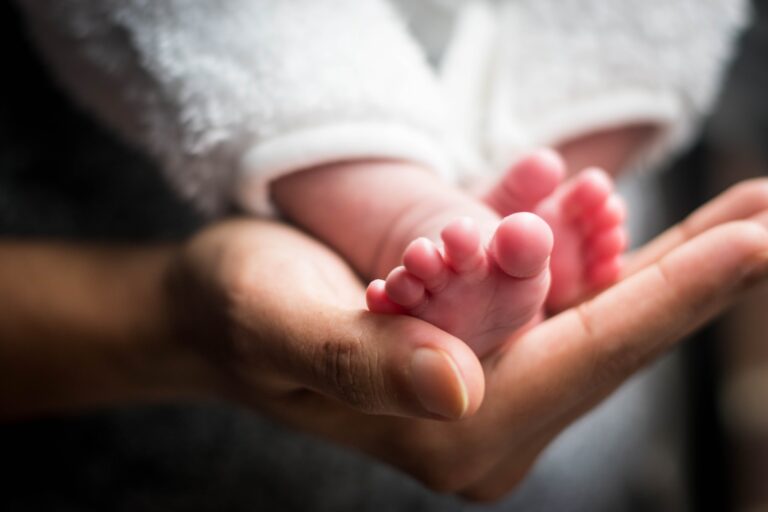You may be physically ready to resume sex after pregnancy, but your sexual desire may take some time to return. Keeping open communication with your partner and following doctor advice can help.
Most doctors recommend waiting six weeks before trying vaginal sex. This gives your body time to recover from a vaginal or C-section delivery.
Physical recovery
A woman’s body has gone through a lot after pregnancy. She may be sore, tired and dealing with vaginal bleeding. She may also have lower oestrogen levels that lead to vaginal dryness and a less pleasurable sex.
It’s important to remember that no one is the same and you should listen to your own body. If sex feels more painful than pleasurable, it’s probably best to take a break and find other ways to bond with your partner. Spending time together in other ways (like cuddling under the covers or giving each other a massage) can help restore intimacy.
It’s usually not safe to have sex that involves penetration until at least two weeks after delivery. This is especially true if you had a perineal tear, episiotomy or a C-section delivery. This is because bacteria can enter the uterus through the incision site, increasing your risk of infection. This can also lead to dyspareunia, which is sex that hurts. If this is a problem, try taking an over-the-counter pain reliever before sex. You can also try using a personal lubricant.
Hormones
The hormones involved in pregnancy can have you leaping on your partner at one point, and horrified by the thought of sex at another. These hormones can cause pain, vaginal dryness and a low sexual drive. They can also interfere with breastfeeding.
Most doctors recommend waiting 4-6 weeks before having sex after delivery. This gives the body time to heal, especially if you had a cesarean section. It also allows your uterus to recover from where the placenta was attached. This is important because it prevents infection, which can result from any object that enters your vulva, including sexual intercourse or feminine products.
Many women find that sex is painful the first few times they have it after giving birth, especially if they had a vaginal delivery or an episiotomy (a surgical cut to widen the vaginal canal). This is because there are lower levels of oestrogen and a drier vagina. You can help ease this discomfort by using a water-based lubricant. This pain may also be caused by a perineal tear or a poorly stitched repair.
Breastfeeding
Many new moms find they have less interest in sex when breastfeeding. This is normal. Some even feel less sexually aroused, a result of the hormone oxytocin that’s involved in milk letdown and breastfeeding. If you’re breastfeeding, sex should only happen when you and your partner are ready to have it. Try to set the mood with candles, a glass of wine (if you’re breastfeeding) or a massage. If you’re interested in sex, consider using a personal lubricant to make it more pleasurable for both of you.
If you had a C-section, your doctor will likely recommend abstaining from sex for at least six weeks because your incision needs time to heal. Having sex while your cervix is still dilated could lead to an infection in the area where the placenta was attached.
You should use a reliable method of contraception to prevent pregnancy until you’re six months postpartum or have stopped breastfeeding. Be sure to talk to your GP, health visitor or family planning clinic about birth control options as some methods aren’t suitable for women who are breastfeeding.
Vaginal bleeding
After delivery, it’s normal to experience lochia or heavy bleeding for several weeks. It’s usually a dark red blood that gradually changes to yellow and then white over weeks. This is the body’s way of expelling the accumulated blood from your uterus and vulva. It may last up to six weeks after birth, according to the Cleveland Clinic. You should only use sanitary pads for the bleeding and avoid tampons as introducing bacteria or foreign objects into your vagina can cause infection. You can have sex after you finish your lochia, but make sure to use contraception until your doctor gives you the OK at a postpartum checkup.
Other complications
Women can resume sexual activity when the integrity of the perineum returns and lochial discharge stops, usually within two to four weeks. Women who had a cesarean section may have to wait longer.
Many couples find that their sexual desire is lower following pregnancy and birth, which is normal. Fatigue and caring for a newborn can make it hard to get excited, plus prolactin hormones increase during lactation and reduce sexual desire.
Many providers recommend abstaining from sex until after your first postpartum visit, when they’ll check your incision site and perineal area for signs of healing. However, each woman’s situation is different and every couple needs to decide when they feel comfortable. If you don’t have a desire for sexual intercourse, there are plenty of other ways to bond with your partner. Try using a lubricant and try positions that don’t put pressure on the abdomen (like lying on your side or getting on your hands and knees, with your partner on top). You can also cuddle and kiss, and focus on intimacy in other ways.
See Also:



